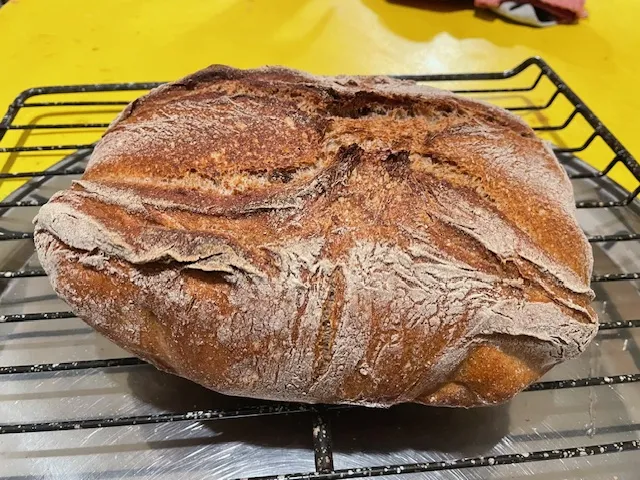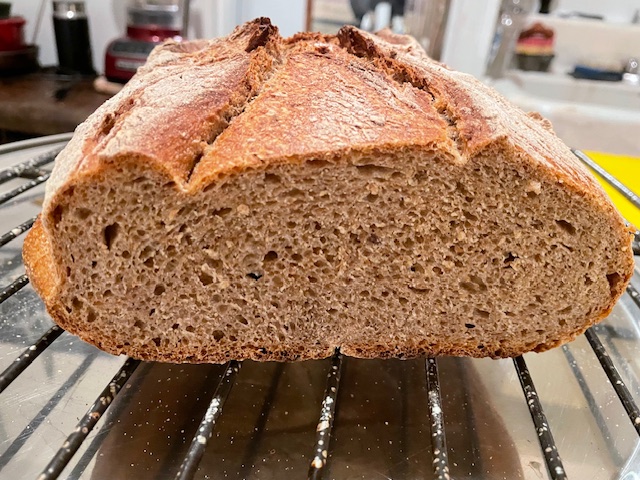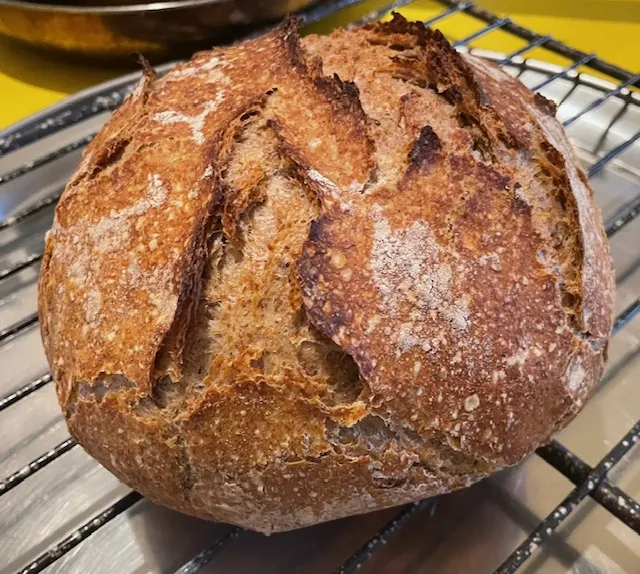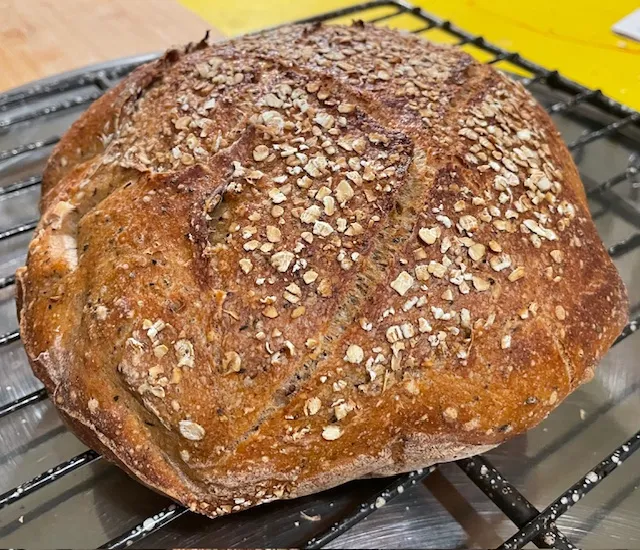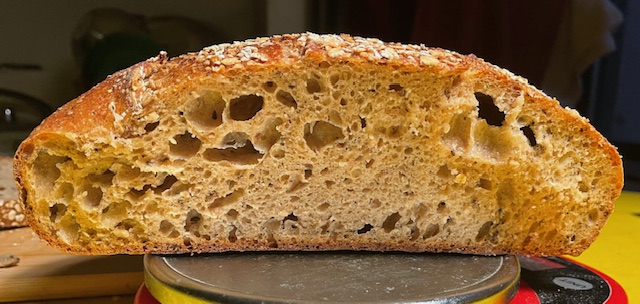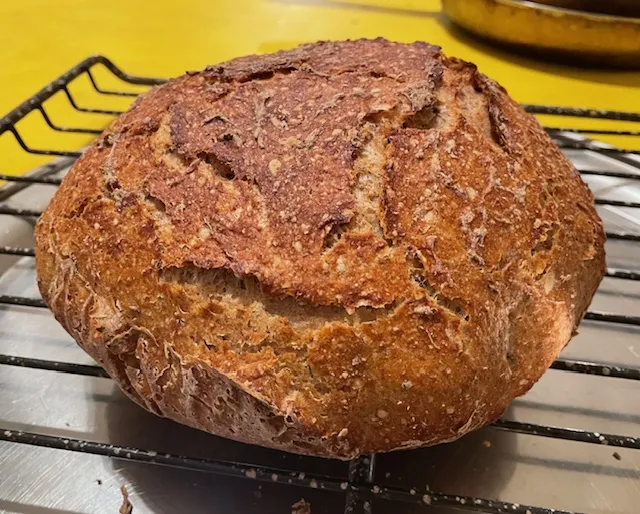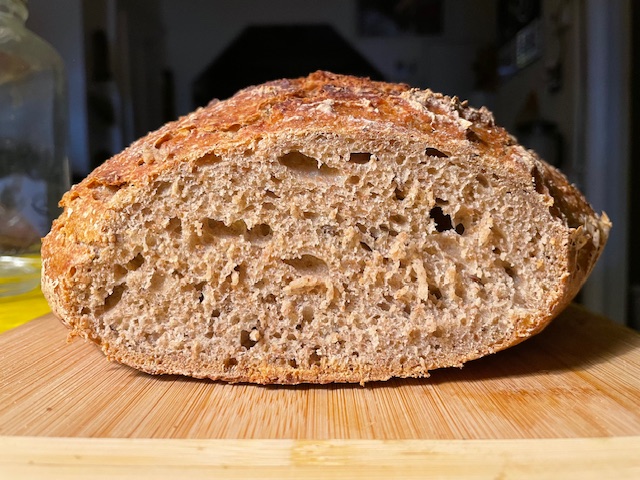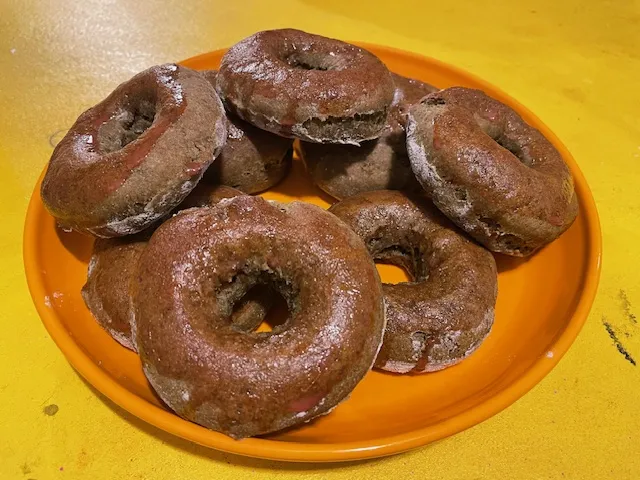the impatient baker strikes again
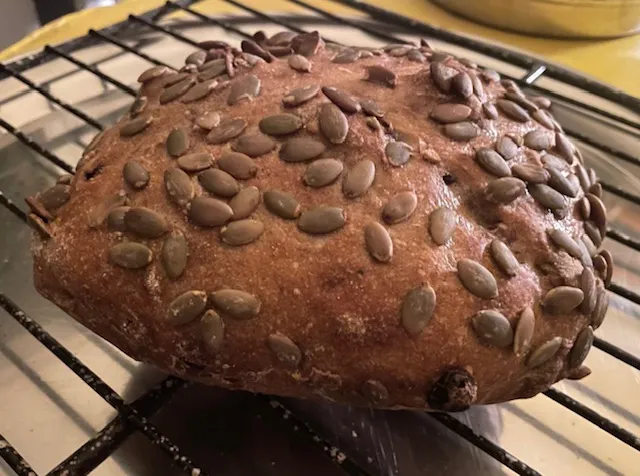
So I was super-patient with the yeast water -- letting four organic apricots sit in water for six days till the liquid was bubbling. But I was super-impatient with the dough: a somewhat more wholegrain version of Hamelman's Swiss Farmhouse formula. (I changed the recipe to 70% bread flour/10% rye/10% spelt/10% malted khorosan because I figured that no self-respecting Swiss farmhouse baker would make a 90% white flour loaf. A white bread is a city bread.)
- Log in or register to post comments
- 6 comments
- View post
- squattercity's Blog
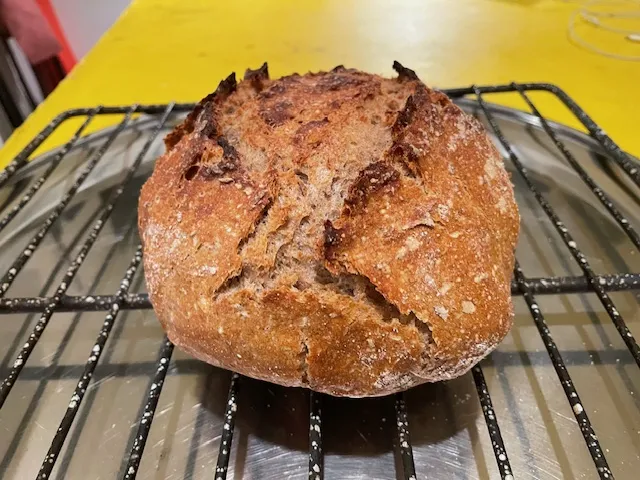
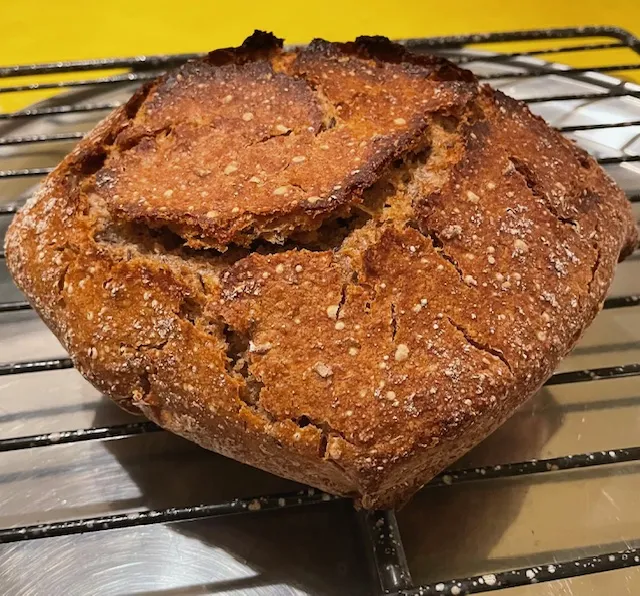
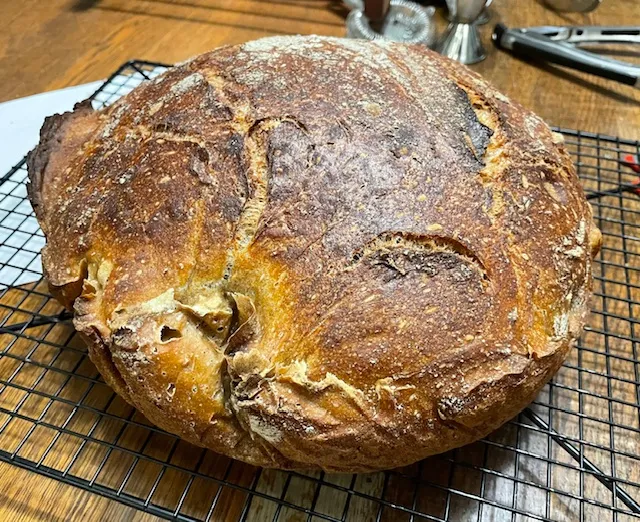
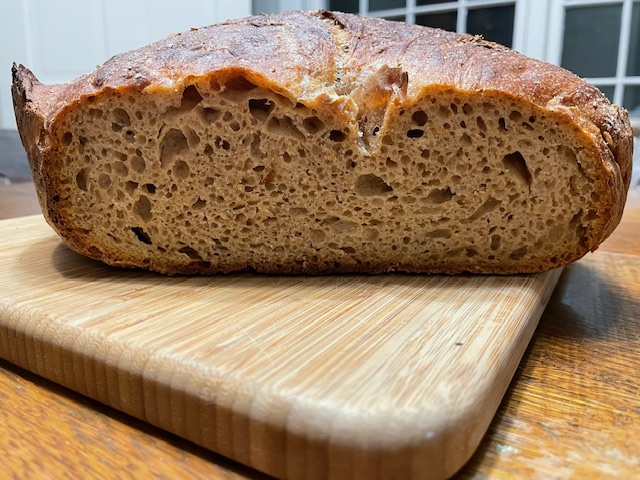 this is my attempt to bake the
this is my attempt to bake the 